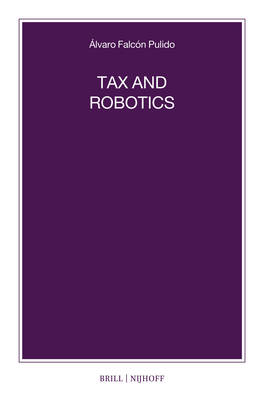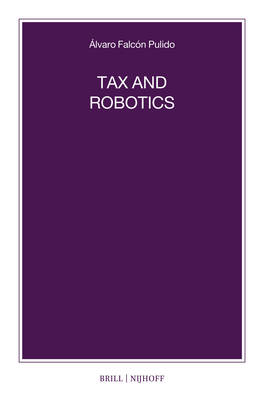
Bedankt voor het vertrouwen het afgelopen jaar! Om jou te bedanken bieden we GRATIS verzending (in België) aan op alles gedurende de hele maand januari.
- Afhalen na 1 uur in een winkel met voorraad
- In januari gratis thuislevering in België
- Ruim aanbod met 7 miljoen producten
Bedankt voor het vertrouwen het afgelopen jaar! Om jou te bedanken bieden we GRATIS verzending (in België) aan op alles gedurende de hele maand januari.
- Afhalen na 1 uur in een winkel met voorraad
- In januari gratis thuislevering in België
- Ruim aanbod met 7 miljoen producten
Zoeken
€ 181,95
+ 363 punten
Omschrijving
We are standing on the threshold of the robotic era, the fourth industrial revolution. The undeniable impact and consequences of robotics are already raising economic concerns, such as the loss of income tax revenue as robots gradually replace human workers, as well as legal doubts regarding the possible taxation of robots or their owners. Financial law must adapt to this new reality by answering several crucial questions. Should robots pay taxes? Can they? Do they have the ability to pay? Can they be considered entrepreneurs for VAT purposes? These are just some of the many issues that Dr. Álvaro Falcón Pulido lucidly and insightfully addresses in this fascinating new monographic work, which includes an exhaustive bibliography on the subject.
Specificaties
Betrokkenen
- Auteur(s):
- Uitgeverij:
Inhoud
- Aantal bladzijden:
- 192
- Taal:
- Engels
- Reeks:
- Reeksnummer:
- nr. 108
Eigenschappen
- Productcode (EAN):
- 9789004538504
- Verschijningsdatum:
- 17/08/2023
- Uitvoering:
- Paperback
- Formaat:
- Trade paperback (VS)
- Afmetingen:
- 152 mm x 234 mm
- Gewicht:
- 226 g

Alleen bij Standaard Boekhandel
+ 363 punten op je klantenkaart van Standaard Boekhandel
Beoordelingen
We publiceren alleen reviews die voldoen aan de voorwaarden voor reviews. Bekijk onze voorwaarden voor reviews.









